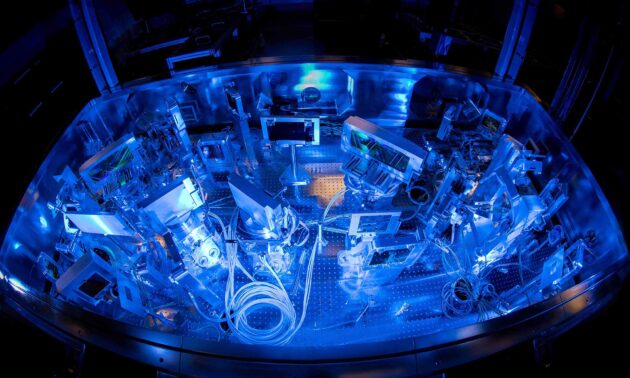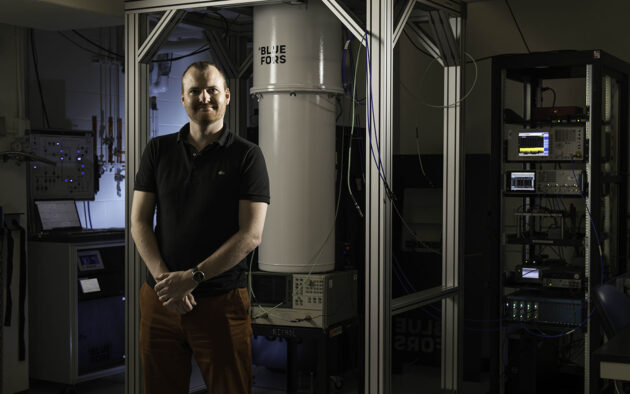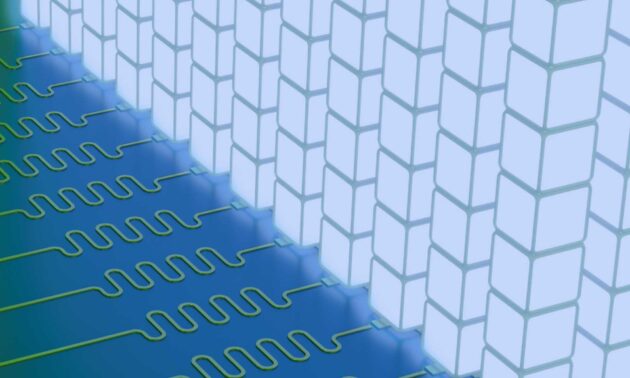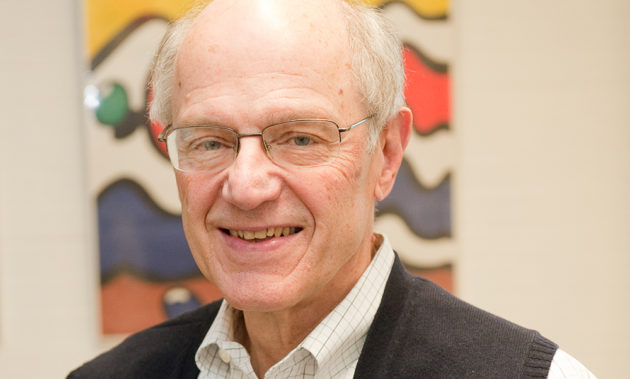Recent News
See the University Newscenter for a full list of quantum science articles.

URochester, RIT receive federal funding to expand experimental ways to communicate using individual particles of light
The funding for the experimental quantum network RoQNET was secured by Senator Schumer, Senator Gillibrand, and Representative Morelle.

URochester awarded Keck Foundation funding to tackle chemistry grand challenge
The cutting-edge project aims to harness quantum light to unlock new chemical processes.

URochester researcher joins global effort to advance quantum electrodynamics
Antonino Di Piazza leads on theory for a multimillion-dollar project exploring the limits of light–matter interaction.

Quantum tunneling: URochester physicist explains a Nobel Prize–winning discovery
Machiel Blok’s research in superconducting circuits builds on the same quantum effects recognized by the 2025 Nobel Prize in Physics.

Why the future of computing is quantum
The strengths and limitations of computing advances are pushing the boundaries of what quantum machines can do.

New theory may solve quantum ‘jigsaw puzzle’
The theory explains how quantum environments can steer chemical reactions—speeding them up or slowing them down without adding heat or light.

Researchers discover more efficient way to route information in quantum computers
Using qudits, Rochester scientists have solved a notoriously difficult problem involving Hilbert space, or the quantum matrix.

Pioneering physicist and optical scientist Joseph Eberly remembered
His serendipitous original foray into optics research would help advance the fields of quantum optics and optical physics.
